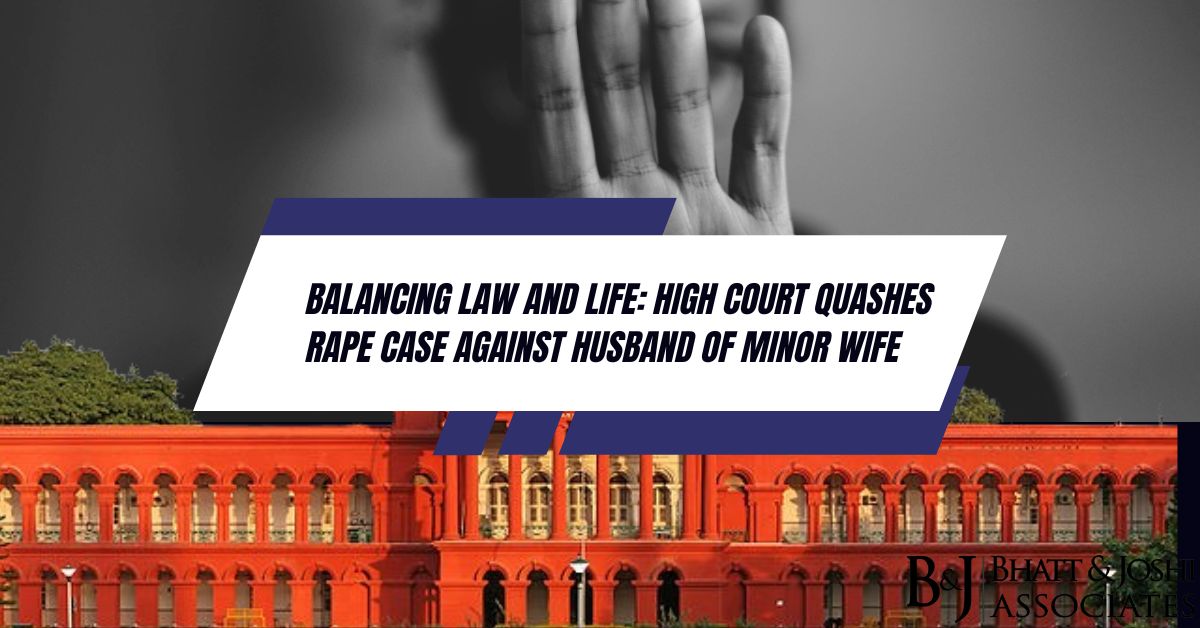High Court Quashes Rape Case Against Husband of Minor Wife: Balancing Law and Life

In a landmark decision that has sparked significant discussion across legal and social circles, the Punjab & Haryana High Court quashes rape case against a man accused of consensual sexual intercourse with his minor wife. This case underscores the complex interplay between strict legal frameworks and the nuanced realities of human relationships and societal norms.
Understanding the Legal Conflict
The Incident and Initial Legal Action
The case came to light when a young couple visited a government hospital, and the doctors discovered that the wife, a minor, was pregnant. Following the protocols under the Protection of Children from Sexual Offences Act, 2012 (POCSO), the doctors reported the matter to the police, leading to the husband’s arrest and the initiation of criminal proceedings.
Legal Frameworks at Play
The central legal question revolved around the application of POCSO, a statute designed to protect children from sexual exploitation, in the context of a consensually married couple where the wife is a minor. The case also involved the Hindu Marriage Act, 1955, and the Prohibition of Child Marriage Act, 2006, highlighting the complexities arising from the intersection of different legal statutes.
High Court’s Judicial Reasoning and Decision: Quashes Rape Case
Justice Harpreet Singh Brar, presiding over the case, emphasized the importance of interpreting laws in a manner that acknowledges the realities of the situation. The court observed that while the laws aimed at protecting minors from sexual exploitation are crucial, their application must be nuanced to avoid unjust outcomes in cases of consensual marital relationships.
Legal Interpretations and Implications
The court noted that under the Hindu Marriage Act, a marriage involving minors is not automatically void but voidable at the instance of the minor party. Since the marriage in question was not annulled, it was recognized as valid, and the husband could legally be the guardian of his minor wife. This interpretation underscores the delicate balance between protecting minors and recognizing the legitimacy of their consensual choices within the confines of marriage.
The Court’s Compassionate Approach
Justice Brar highlighted the need for justice to be tempered with compassion, particularly in cases involving young couples facing significant hardships. The court recognized the emotional and financial turmoil inflicted on the couple by the criminal proceedings and deemed it necessary to quash the FIR to prevent further injustice.
Conclusion: The Path Forward
This decision by the Punjab & Haryana High Court, quashes the rape case against the husband of a minor wife, marking a significant moment in the ongoing dialogue about the interplay between law, justice, and societal norms. It illustrates the critical need for a compassionate and nuanced approach to justice, one that considers the individual circumstances of each case while upholding the principles of fairness and protection for all.
The ruling also sparks a broader discussion on the adequacy of existing legal frameworks to address the complexities of modern relationships and societal structures. As society evolves, so too must the laws and judicial approaches that govern it, ensuring that justice, in its truest sense, is served.
 Whatsapp
Whatsapp

